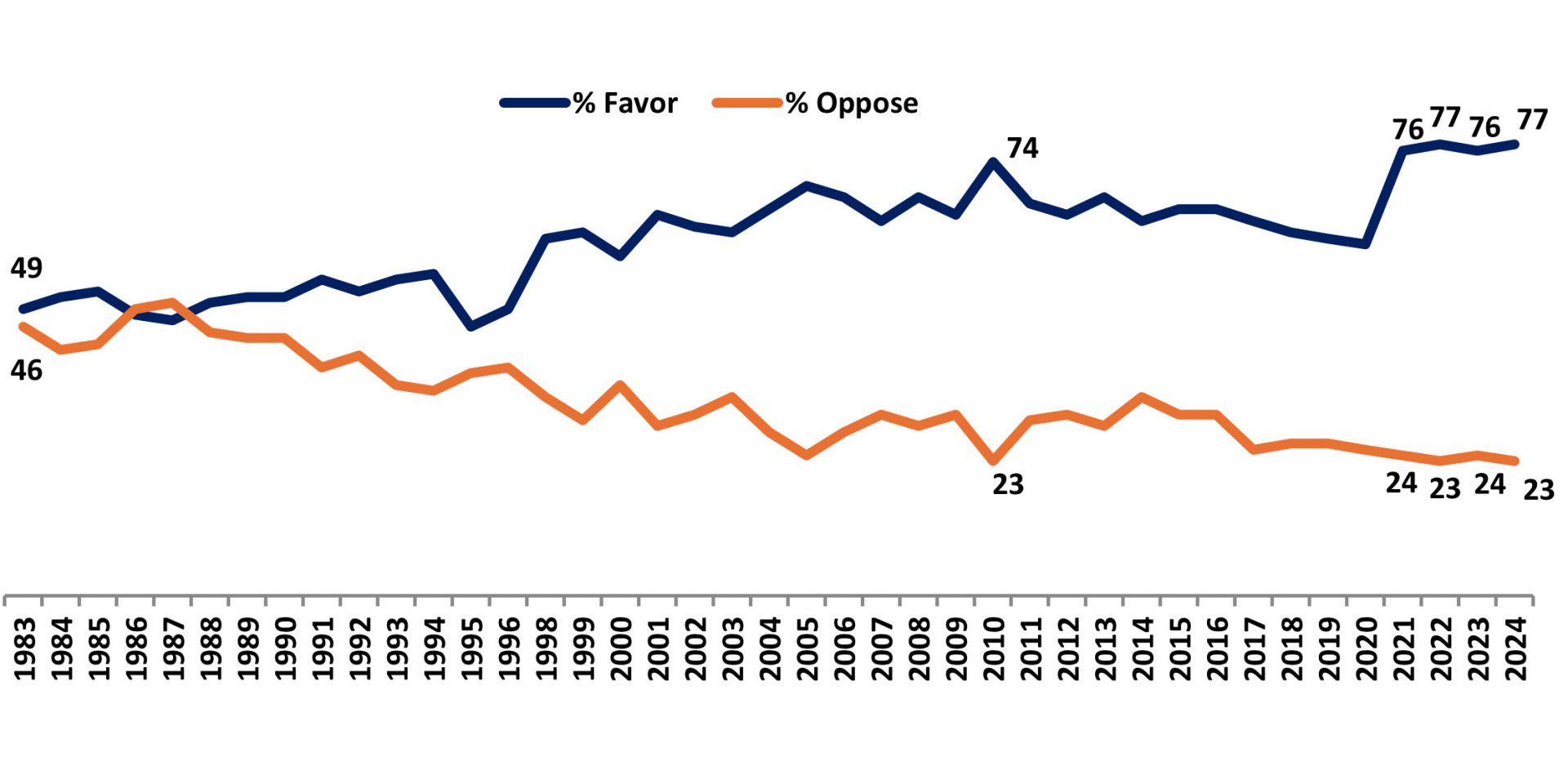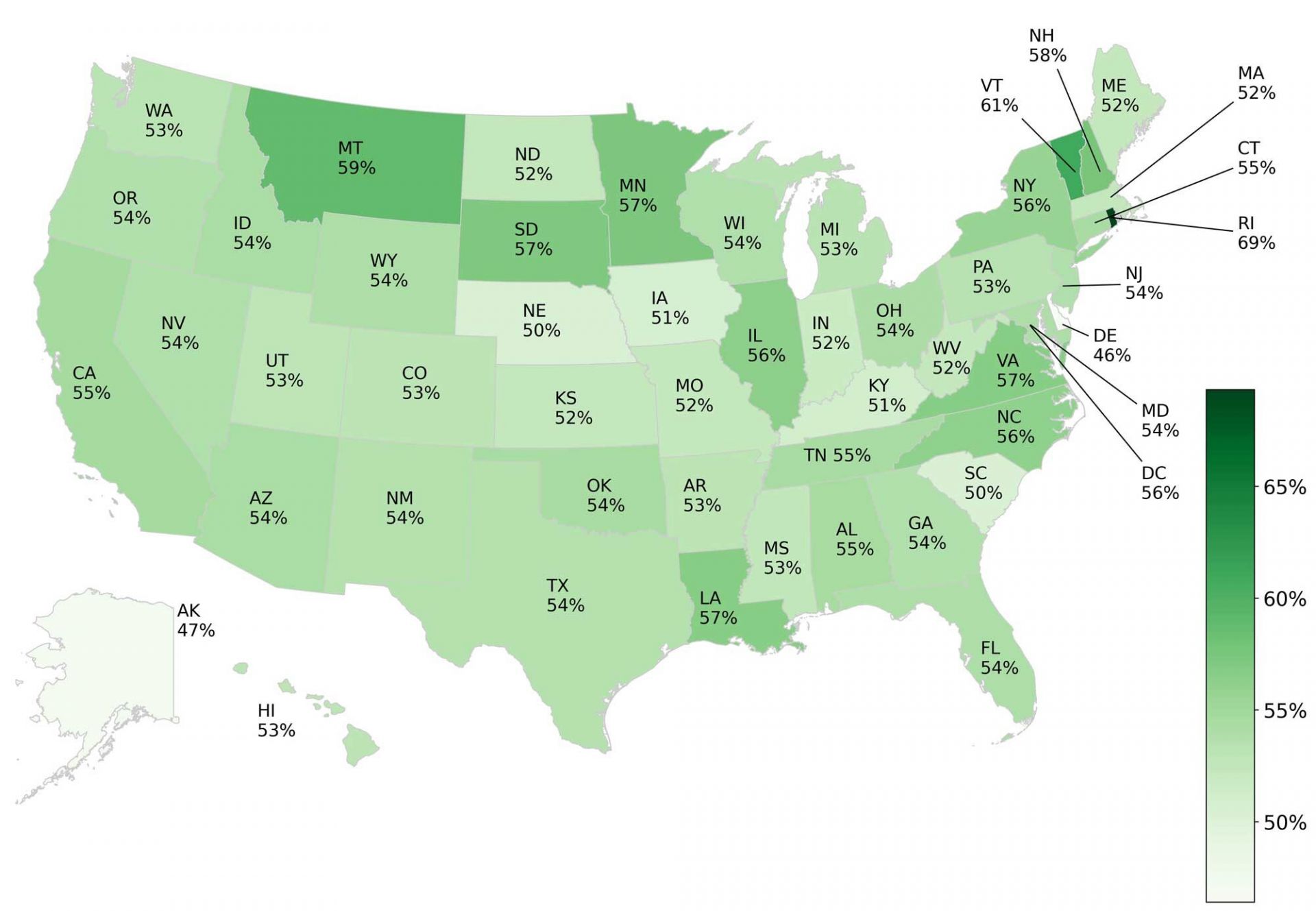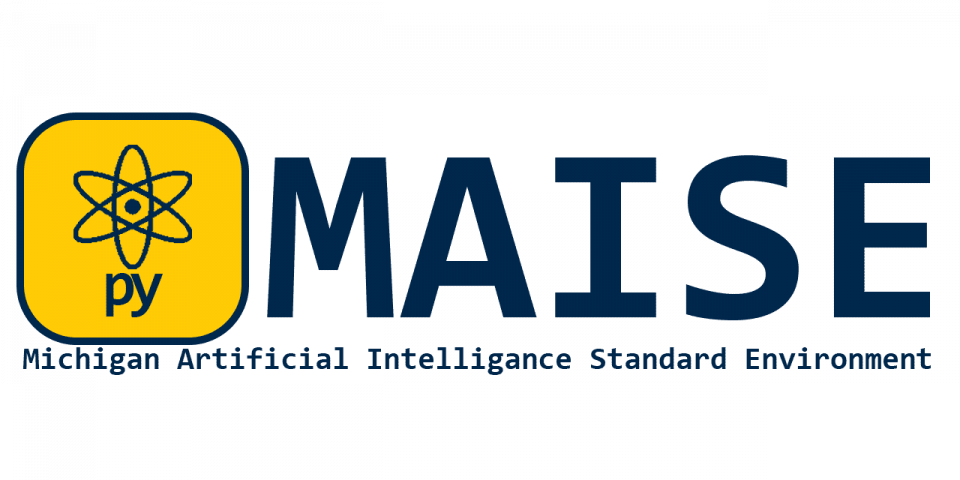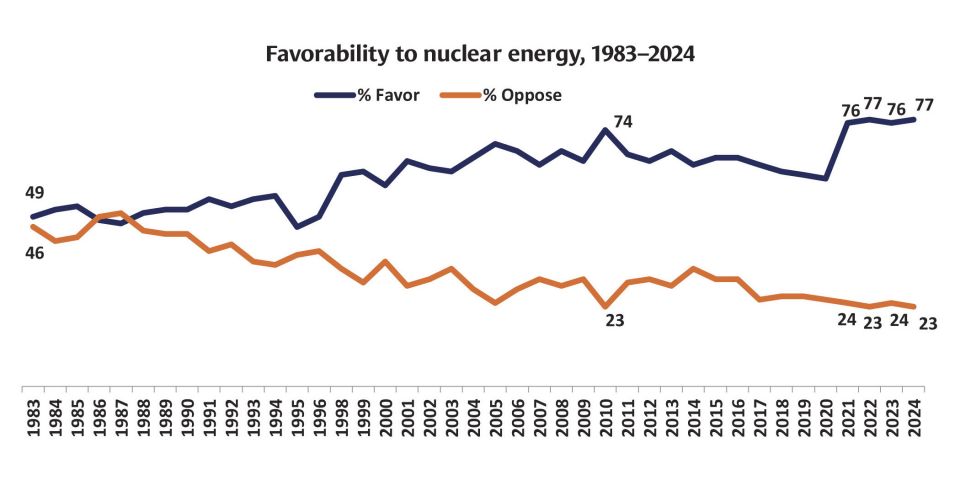Surveys reveal public support for, but some concerns on, nuclear energy
 2x1.jpg)
Results of two new surveys have shed light on American public opinion regarding nuclear energy. The surveys, which were conducted with very different methods, offer generally encouraging news for the nuclear industry.
The 2024 National Nuclear Energy Public Opinion Survey, conducted by Bisconti Research, has found that—for the fourth consecutive year—more than 75 percent of the U.S. public supports the use of nuclear energy. The company’s president, Ann Stouffer Bisconti, described the record high support of 77 percent as “a sea change from three decades ago, when the public was about evenly divided between those who favored nuclear energy and those who were opposed.”
Separately, a University of Michigan analysis of 300,000 U.S.-geotagged posts on the social media platform X (formerly known as Twitter) indicated that people in 48 of the 50 states have more positive than negative attitudes regarding nuclear energy. This analysis estimated an overall national average of 54 percent positive feelings for nuclear power. However, this study, “Sentiment analysis of the United States public support of nuclear power on social media using large language models,” published in the journal Renewable and Sustainable Energy Reviews, also suggested that public concerns about nuclear waste, safety, and cost remain prominent.
Bisconti survey: The 2024 Bisconti survey was conducted between April 30 and May 2 and included 1,000 adults as a “nationally representative sample drawn from the Quest Mindshare Online Panel of 3.5 million people in the U.S.” The margin of error for the survey results was ±3 percent. Comparable surveys on the American public’s nuclear views have been conducted since 1983.
Since 2021, the Bisconti survey has shown U.S. public support for using nuclear energy at highs of either 76 percent or 77 percent, compared with a previous high of 74 percent in 2010. The survey also found that public support for nuclear power plant license renewal and building more plants has been at record-high levels for the past four years. Support for license renewal (for nuclear plants that meet federal safety standards) rose from 86 percent in 2021 to 88 percent in 2024, while support for “definitely” building new nuclear plants grew from 69 percent in 2021 to 71 percent in 2024.
Knowledge leads to support: In line with previous results, this year’s survey indicated that Americans’ support for nuclear energy increases with their level of knowledge about this energy source. Fifty-four percent of survey respondents with “low knowledge” about nuclear energy “somewhat or strongly” favor its use, compared with 88 percent of respondents with “high knowledge.”
Gender and age: Other factors that were analyzed include the relationship of gender, age, education level, political affiliation, and geographic region to nuclear attitudes.
Gender appears to be a big factor in one’s views about nuclear power. The 2024 survey revealed that 86 percent of men somewhat or strongly favor the use of nuclear energy, compared with 70 percent of women.
Baby Boomers (born between 1946 and 1964) and Millennials (1981–1996) show the strongest support for nuclear energy, with 36 percent and 35 percent, respectively. For Gen Z (1997–2012) and Gen X (1965–1980), strong support for nuclear energy was found to be 26 percent and 24 percent, respectively. When respondents who somewhat favored nuclear energy were added to those who expressed strong favor, the levels of support for all age groups rose to about 80 percent, except for Millennials, who were at 75 percent.
Education and politics: Eighty-two percent of college graduates strongly or somewhat favor nuclear energy, compared with 74 percent of respondents who did not graduate from college. Eighty-five percent of self-identified Republicans strongly or somewhat favor nuclear energy, compared with 78 percent of self-identified Democrats and 71 percent of independents.
Region: The regions with the most positive attitudes toward nuclear power were found by the Bisconti survey to be the Northeast and South, where 79 percent and 78 percent, respectively, of respondents strongly or somewhat favor the use of nuclear energy. Those numbers compared with 75 percent support in the West and 74 percent in the Midwest.
More details as well as results of prior Bisconti surveys regarding nuclear energy are available online.

Map showing percentages of positive attitudes toward nuclear energy in each state, based on an analysis of X posts by researchers at the University of Michigan. (Graphic: University of Michigan)
“Sentiment analysis” study: In the University of Michigan analysis of social media posts, researchers used an extensive list of keywords related to nuclear energy to compile 1.26 million posts from X between 2008 and 2023. They then “leveraged large language models, or LLMs, to annotate posts as positive, negative or neutral” and incorporated seven different data labeling programs to help determine whether posts were positive, negative, or neutral, based on a “majority rules approach.”
The researchers, who are part of University of Michigan’s Fastest Path to Zero Initiative, used these innovative methods to analyze approximately 300,000 nuclear energy posts that were geotagged to the United States. The computer resources of Idaho National Laboratory aided the investigators in their analysis.
Neutral, positive, or negative: Analysis revealed that “neutral sentiments—those that present facts without advocating for or against the use of nuclear technology—were the most common at about 50%, followed by posts with a positive tone at 30% and a negative tone at roughly 23%.”
The study found that the only states in which negative attitudes toward nuclear power outweighed positive attitudes were Delaware (where support for nuclear energy was estimated at 46 percent) and Alaska (47 percent). The states showing the most positive attitudes were Rhode Island (69 percent); Vermont (61 percent); Montana (59 percent); New Hampshire (58 percent); South Dakota, Minnesota, Louisiana, and Virginia (all at 57 percent); and Illinois and North Carolina (56 percent).
Technology themes: The researchers identified certain technology themes as being associated with positive sentiments in the social media posts, including innovations in making nuclear energy safer, more reliable, and more economical. Many positive posts noted nuclear energy’s “high energy density and ability to operate reliably 24/7” as well as “job creation and the necessity of transitioning to clean energy production.”
Concerns: Negative social media posts primarily highlighted issues of radioactive waste, high cost, and safety hazards. Such posts, for example, “expressed concern about how radioactive waste will be handled, noting that waste remains dangerous for thousands of years and creates challenges in disposal.”








